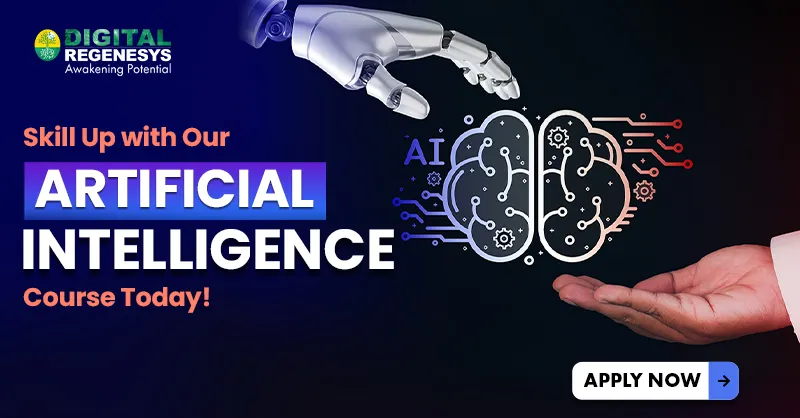Kenya Artificial Intelligence Trends for 2026

What makes Kenya a rising leader in AI innovation across Africa? With Nairobi earning the nickname “Silicon Savannah,” the country is embracing technology across startups, businesses, and public services.
A young, digitally fluent population is accelerating adoption, and mobile penetration continues to soar. Businesses are leveraging AI for smarter operations, while innovation hubs provide space for experimentation.
In this article, we explore Kenya’s AI trends for 2026, covering emerging technologies, business transformations, social impact, innovation hubs, workforce readiness, and opportunities shaping the country’s AI-driven future.
Kenya’s AI Innovation Landscape
Kenya’s AI ecosystem is vibrant, powered by startups, innovation hubs, and collaborations. Nairobi, Mombasa, and Kisumu host accelerators and incubators fostering practical AI solutions. Startups are addressing local challenges in fintech, agritech, and edtech, attracting both domestic and international investment.
Knowledge-sharing initiatives encourage research and hands-on experimentation. Government programs are providing funding and policy support to scale AI solutions, while competitions and hackathons cultivate an innovation culture among youth and professionals.
Key Elements:
- Startup-led AI solutions in fintech, agritech, and edtech
- Innovation hubs and accelerator programs
- Public-private and international collaborations
- Investment trends and funding opportunities

Emerging Technologies Driving AI Adoption
Kenya is embracing a range of AI technologies tailored to local needs. Natural language processing enables chatbots and virtual assistants in local languages. AI-powered mobile financial services expand access to banking and microfinance. Predictive analytics enhances logistics, supply chain management, and crop yields, while computer vision facilitates agricultural monitoring and urban planning.
Automation tools help businesses make faster, data-driven decisions. Collectively, these technologies not only improve efficiency but also create solutions tailored to Kenya’s unique socio-economic landscape.
Technologies in Focus:
- Natural language processing for local languages
- AI in mobile financial services and microfinance
- Predictive analytics in logistics and agriculture
- Computer vision for monitoring and planning
AI in Business: Transforming Industries Beyond Sectors
Businesses across Kenya are leveraging AI to optimise operations and drive growth. Retailers use AI for demand forecasting and inventory management. Financial institutions deploy AI for fraud detection, credit scoring, and personalised customer recommendations.
Logistics and supply chain companies employ predictive tools to optimise routes and reduce costs. Marketing teams use AI-driven analytics for customer insights and targeted campaigns. Across industries, AI is enabling smarter decisions, faster responses, and enhanced customer experiences, transforming business landscapes from traditional approaches to data-driven strategies.
Business Applications:
- Customer insights and marketing automation
- Smart inventory and supply chain management
- Fraud detection and financial analytics
- AI-driven product recommendations

AI for Social Impact and Public Services
AI is not limited to profit-driven sectors; it’s reshaping social services in Kenya. Telemedicine and AI-driven diagnostics improve healthcare access, especially in rural areas. In education, adaptive learning platforms personalise content and provide virtual tutor support.
Urban planning benefits from predictive models for traffic, public utilities, and governance efficiency. Environmental monitoring uses AI to track climate risks and water resources. These applications demonstrate AI’s ability to enhance societal outcomes, improve citizen services, and foster equitable access to essential resources.
Social Impact Applications:
- Telemedicine and predictive healthcare tools
- Adaptive learning platforms and virtual tutors
- AI for urban planning and governance
- Environmental and climate monitoring
Startup Spotlights and Innovation Challenges
Kenya’s AI startups are solving local problems with global potential. Hackathons and competitions encourage youth participation and skill development. Innovation challenges, often sponsored by government or international organisations, incentivise solutions for healthcare, agriculture, and financial inclusion.
Universities partner with startups to develop practical AI projects, fostering knowledge transfer and hands-on learning. By supporting entrepreneurial AI ventures, Kenya is nurturing an ecosystem where ideas can scale and address both local and international challenges effectively.
Startup Ecosystem Highlights:
- Hackathons and AI competitions for youth
- Startup-led solutions addressing local needs
- University collaborations and research partnerships
- International knowledge transfer initiatives

Building Kenya’s AI Workforce
A skilled workforce is essential for scaling AI. Universities and technical institutes are introducing AI, machine learning, and data science courses. Upskilling initiatives, workshops, and bootcamps provide hands-on experience with AI tools. Gender-focused programs encourage women to enter tech fields.
Practical, project-based learning ensures professionals gain relevant expertise. Courses like the Digital Regenesys Artificial Intelligence Certificate Course offer structured training, bridging the gap between theory and real-world application. By cultivating talent, Kenya ensures it can fully leverage AI across industries.
Workforce Development Initiatives:
- University AI and data science programs
- Upskilling workshops and bootcamps
- Gender-inclusive tech initiatives
- Hands-on courses like Digital Regenesys AI Certificate Course
Challenges and Roadblocks
Despite rapid adoption, Kenya faces obstacles in AI deployment. Rural areas experience limited connectivity, restricting access to AI tools. Talent shortages and skill gaps slow implementation. Ethical and regulatory frameworks are still evolving, creating uncertainty for businesses.
Ensuring equitable adoption across urban and rural areas remains a challenge. Addressing these barriers requires infrastructure investment, regulatory clarity, and targeted training programs. By proactively managing these challenges, Kenya can build a sustainable and inclusive AI ecosystem.
Challenges:
- Unequal digital access between urban and rural regions
- Shortage of skilled AI professionals
- Ethical and regulatory considerations
- Balancing innovation with social impact
Future Outlook and Predictions for 2026
Kenya’s AI future is promising, driven by innovation, policy, and talent. Key trends include AI-powered fintech, smart agriculture, personalised education, AI in governance, and environmental monitoring.
Startups and innovation hubs will continue to play a pivotal role. By 2026, AI is expected to significantly enhance productivity, improve service delivery, and drive economic growth across sectors.

Conclusion
Kenya’s AI ecosystem is evolving rapidly, combining innovative technologies, startup energy, sectoral applications, and workforce development. The country is set to become a continental leader in AI adoption and application.
Professionals can equip themselves for this transformation through practical courses like the Digital Regenesys Artificial Intelligence Certificate Course, gaining hands-on skills to contribute to AI-driven growth.
Visit Digital Regenesys to upskill in AI and participate in Kenya’s AI innovation journey.
Last Updated: 19 November 2025
